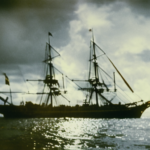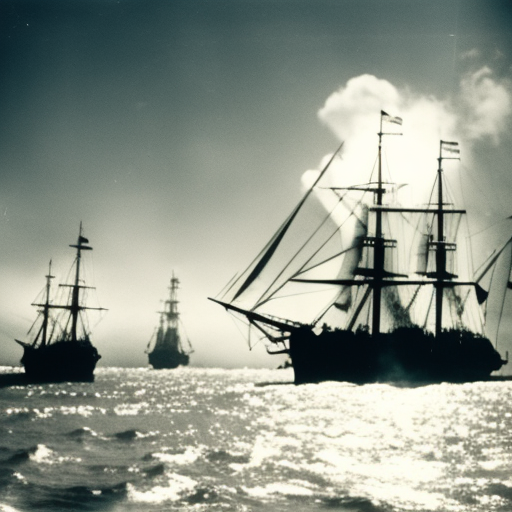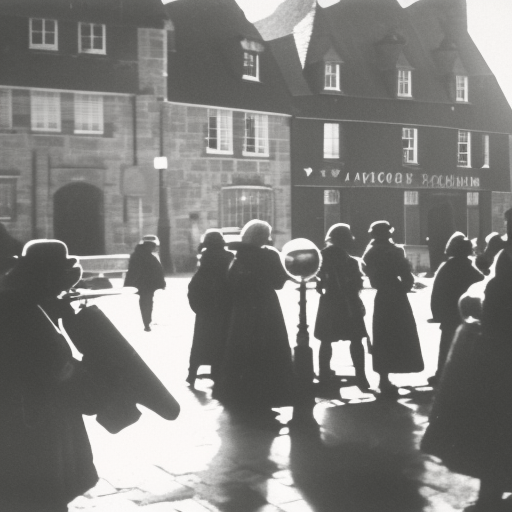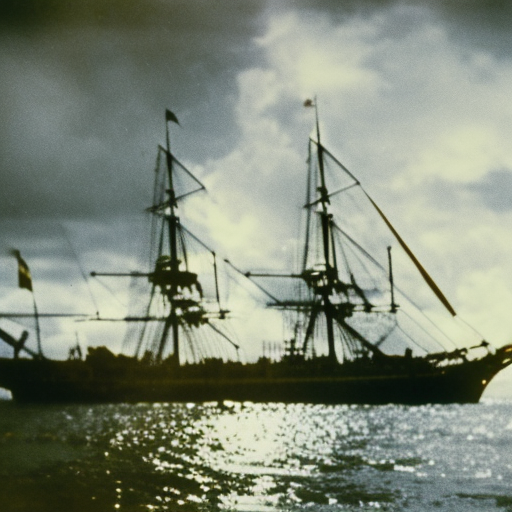The Battle of Trafalgar (1805)
The Battle of Trafalgar, fought on October 21, 1805, was a naval engagement between the British Royal Navy and the combined fleets of France and Spain during the Napoleonic Wars. The battle took place off the southwest coast of Spain, near Cape Trafalgar, and resulted in a decisive victory for the British under the command of Admiral Lord Nelson. This victory established British naval supremacy for the rest of the war and effectively ended any chance of Napoleon Bonaparte invading Britain.
Causes of the Battle
By 1805, Napoleon had successfully conquered much of continental Europe and sought to consolidate his power by isolating Britain. To achieve this, he planned to invade Britain and needed to neutralize the British Royal Navy, which was the largest and most powerful navy in the world at the time. In response, the British formed a coalition with several European powers, including Austria and Russia, to counter Napoleon’s expansion. The French and Spanish fleets joined forces in an attempt to break the British blockade and gain control of the English Channel.
Preparations and Strategies
Admiral Lord Nelson, the British commander, devised a bold strategy to engage the enemy fleet. He planned to divide the enemy line into three sections and attack the weaker center and rear, aiming to capture or destroy as many enemy ships as possible. Nelson’s plan relied on the superior seamanship and gunnery skills of his sailors, as well as his belief in aggressive tactics.
The Battle
On the morning of October 21, the British fleet, consisting of 27 ships, including Nelson’s flagship HMS Victory, engaged the combined French and Spanish fleet of 33 ships. The British fleet sailed in two columns towards the enemy, with Nelson leading the attack in the center. As the battle commenced, the British ships pounded the enemy with devastating broadsides, causing significant damage to their ships and morale.
Nelson’s flagship, HMS Victory, engaged the French flagship, Bucentaure, and after a fierce exchange of fire, Nelson was fatally wounded by a sniper’s bullet. However, his leadership and tactics had already ensured the British victory. The British captured or destroyed 19 enemy ships, while not losing a single ship of their own. The French and Spanish suffered heavy casualties, with over 6,000 men killed or wounded, compared to the British loss of around 1,500.
Impact and Significance
The Battle of Trafalgar had a profound impact on the outcome of the Napoleonic Wars. It secured British naval dominance for the remainder of the conflict, preventing any possibility of a French invasion of Britain. The battle also shattered Napoleon’s plans to isolate Britain and forced him to abandon his invasion plans. The victory at Trafalgar boosted British morale and established Admiral Lord Nelson as a national hero.
The battle also had far-reaching consequences for naval warfare. Nelson’s innovative tactics, which involved breaking the enemy line and engaging in close-quarters combat, became the standard for naval engagements for decades to come. The battle highlighted the importance of skilled leadership, disciplined crews, and accurate gunnery in naval warfare.
Legacy
The Battle of Trafalgar remains one of the most celebrated naval victories in British history. Nelson’s famous signal before the battle, “England expects that every man will do his duty,” has become an enduring symbol of British patriotism. The battle is commemorated through various monuments and memorials, including Nelson’s Column in Trafalgar Square, London.
In conclusion, the Battle of Trafalgar was a pivotal moment in history that secured British naval supremacy, prevented a French invasion of Britain, and established Admiral Lord Nelson as a national hero. The battle’s impact on naval warfare and its enduring legacy make it a significant event in world history.












